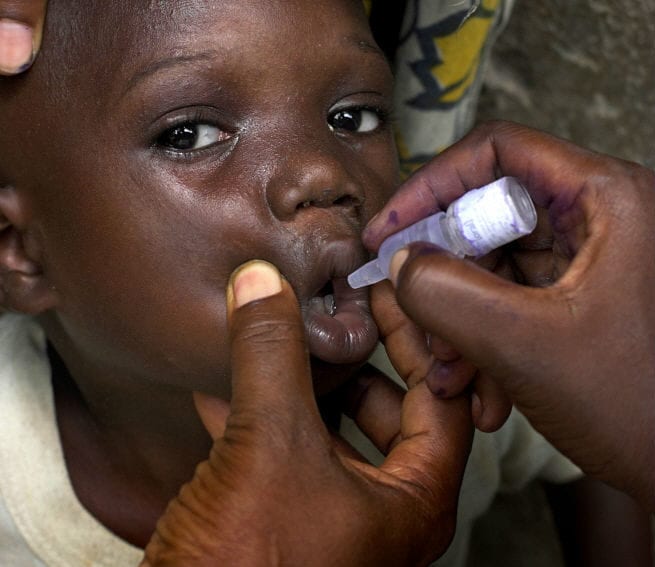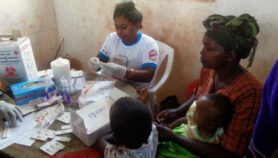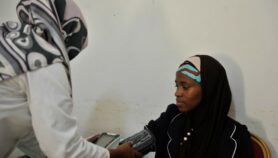By: Baraka Rateng’
Send to a friend
The details you provide on this page will not be used to send unsolicited email, and will not be sold to a 3rd party. See privacy policy.
[KISUMU, KENYA] Rotavirus vaccination can reduce the risk of infants dying from diarrhoea by almost a third, a trial in Malawi has found.
Globally, diarrhoea causes 17 per cent of deaths in children who are at least four weeks old, according to researchers from Malawi, the United Kingdom and the United States who conducted the study.
But despite rotavirus being a major common cause of death among infants and young children, especially in Africa and Asia, the effect of rotavirus vaccine on diarrhoeal deaths has not been estimated in low-income settings in such regions, the researchers add.
Rotavirus vaccination reduced infant diarrhoea deaths by 31 per cent in a rural Malawi setting known for high levels of child deaths, says the study published in the September edition of Lancet Global Health.
“Countries that haven’t introduced this vaccine should introduce it and countries that have introduced it should redouble their efforts.”
Naor Bar-Zeev, Johns Hopkins Bloomberg School of Public Health
“This large population-based birth cohort study is the first to report rotavirus vaccine-associated infant mortality reductions from a low-income country using the WHO recommended Expanded Programme on Immunisation schedule of six and ten weeks,” the study adds.
Naor Bar-Zeev, study co-author and associate professor in the Department of International Health at US-based Johns Hopkins Bloomberg School of Public Health, tells SciDev.Net: “Countries that haven’t introduced this vaccine should introduce it and countries that have introduced it should redouble their efforts to make sure the vaccine reaches children in all provinces, especially in hard to reach places.
“If a country has a vaccine coverage rate of 65 per cent it is still worth their effort to make that coverage 85 or 90 per cent.”
The researchers followed all 48,682 infants born between January 2012 and June 2015 in Mchinji, Central Malawi. They then analysed data on the children surviving ten weeks.
“Individual vaccination status was extracted from caregiver-held records or report at home visits at four months and one year of age. Survival to one year was confirmed at home visit, or cause of death ascertained by verbal autopsy,” the study says.
According to Bar-Zeev, rotravirus infects children in the first or second year of life, often leading to vomiting and diarrhoea that could cause profound dehydration and even death.
Map illustrating countries that have introduced rotavirus vaccine and those that have not yet introduced it
Bar-Zeev explains that once Nigeria and other African countries such as Algeria, Chad, Egypt, Somalia, Tunisia and South Sudan introduce the vaccine, there will be significant gains in child survival in Africa.
Other countries that should prioritise rotavirus vaccination because of the high infant mortality or their large populations are Cambodia, China, North Korea, Papua New Guinea, and Syria, he adds.
Lucinda Manda-Taylor, a senior lecturer at the University of Malawi College of Medicine, says: “This trial and earlier trials in Malawi and South Africa have demonstrated that the vaccine is effective. The implementation and use of [the] rotavirus vaccine in childhood immunisation programmes will help save lives,” she adds.
“The lives and health of our children depends on policymakers using evidence-based research to address this goal,” Manda-Taylor tells SciDev.Net, adding that it is the moral and ethical duty of policymakers to make sure that children get the rotavirus vaccine.
This piece was produced by SciDev.Net’s Sub-Saharan Africa English desk.
References
Naor Bar-Zeev and others Impact of monovalent rotavirus vaccine on diarrhoea-associated post-neonatal infant mortality in rural communities in Malawi: a population-based birth cohort study (Lancet Global Health, September, 2018














